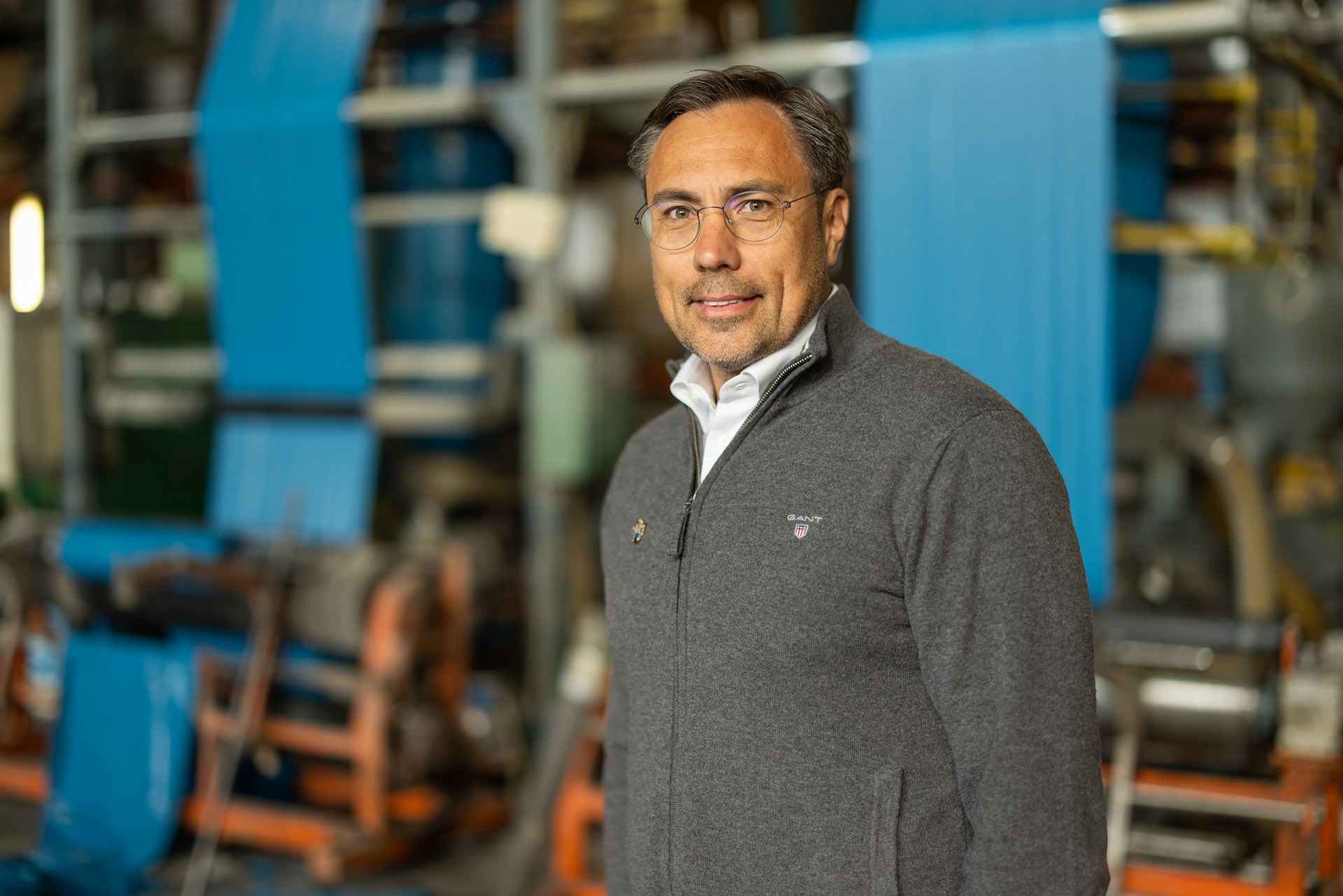Plasta increases plastic recycling volumes: financing from Swedbank will allow it to continue its market leadership
Plasta, one of the largest polyethylene waste recycling and plastic production companies in the Baltic region, has modernised its recycling lines and purchased additional equipment at a cost of EUR 10 million. The project, which was partly financed by Swedbank, has enabled the company to start separating and recycling household plastic waste, thus making a significant contribution to reducing the amount of plastic sent to landfill across Europe.
Investing in more recycling capacity for plastic waste
Plasta, one of the leading recyclers of polyethylene waste and producers of plastic products, continued to invest in increasing its plastic waste recycling capacity in 2023. Initially, an optical sorting line was installed at a cost of €5.3 million to separate recyclable and non-recyclable plastic waste streams collected from European households. Thanks to this line, the company has started to recycle household plastic waste, thus increasing the amount of plastic waste recycled.
“Household waste is one of the most difficult wastes to sort and recycle, as it is the most polluted waste and the recycling process is energy and water intensive. We are proud to be using a new technology that allows us to sort recyclable household plastic waste from those that cannot be recycled. In this way, we are reducing the amount of plastic going to landfill across Europe,” says Plasta CEO Dan Poder.
In 2023, Plasta continued its investment with the purchase of a new washing line worth €1.9 million and a water treatment plant worth €1.2 million. The increase in the volume of recycled plastics also led to investments in additional production lines for film and garbage bags, as well as the expansion of electricity capacity. The company estimates that the modernisation of the recycling facilities will allow an additional recycling of around 9,000 tonnes of plastic per year.
“Our refuse sacks are made from up to 100% recovered plastic waste and are recyclable. So all this waste will not end up in landfills, but will be given a new life – for further use in our households, thus reducing the negative environmental footprint of plastics throughout their life cycle,” says Mr Poder. “Plastic is the most efficient raw material for reuse and the innovations we are introducing will further increase the quality and efficiency of plastic recycling. By further expanding the possibilities for water reuse in the cycle, we will optimise the company’s energy needs, further reducing our environmental impact.”
“Manufacturing processes that produce products from recycled materials are at the heart of the circular economy. This reduces waste and the greenhouse gas emissions that would result from landfilling. In addition, products made from recycled materials have a smaller environmental footprint than those made from new raw materials. We are therefore happy to help businesses increase the efficiency of recycling,” says Karolina Semionovaitė, Head of Sustainability at Swedbank.
“Plasta processes a wide range of plastic waste – construction plastic, household plastic, agricultural films and other contaminated waste – into high-quality plastic pellets, which are then used to produce refuse sacks and film at its plants in Lithuania and Sweden. The company estimates that the innovations will increase its annual production capacity of refuse sacks by almost 5 000 tonnes.
Until now, Lithuanians have been familiar with Plasta’s private-label garbage bags, but the company has recently launched a revamped brand, Trash Panda. The Panda Panda bags are made from 100% recycled waste, with 40% to 60% or more of the recycled waste coming from sorted household plastics.
Sustainability at the heart of the business strategy
“Plasta focuses on sustainability in all areas of its business: not only in production, but also in corporate governance and employee welfare. The company voluntarily discloses sustainability-related information and has environmental and social responsibility targets. For example, Plasta is committed to reducing CO2 emissions by 5% annually for every tonne of production and to reducing the amount of plastic waste sent to landfill or incineration plants by 25% per year from 2024. In the area of social impact, Plasta is committed, among other things, to zero serious injuries and accidents at work.
“The Bank’s main sustainability impact comes from the financing area. By financing companies that contribute to a more sustainable economy, we create value both for the individual customer and for the country as a whole. We see a strong rationale for contributing to projects that reduce environmental impacts, contribute to the development of the circular economy and increase the resilience of businesses to the risks associated with climate change. Sustainability criteria have already become part of the lending process and the importance of this element will only increase in the future,” says Swedbank’s Head of Sustainability.
